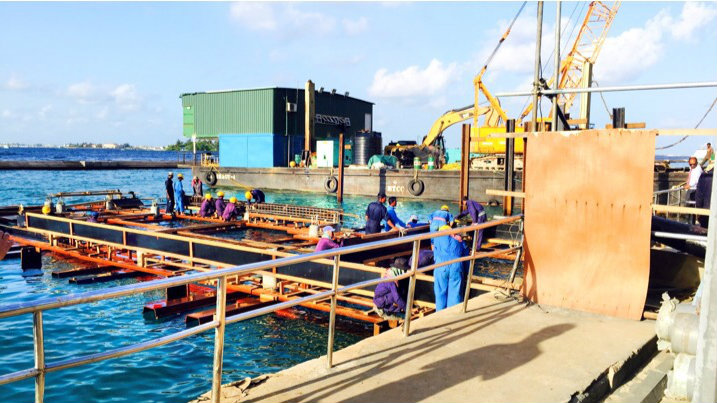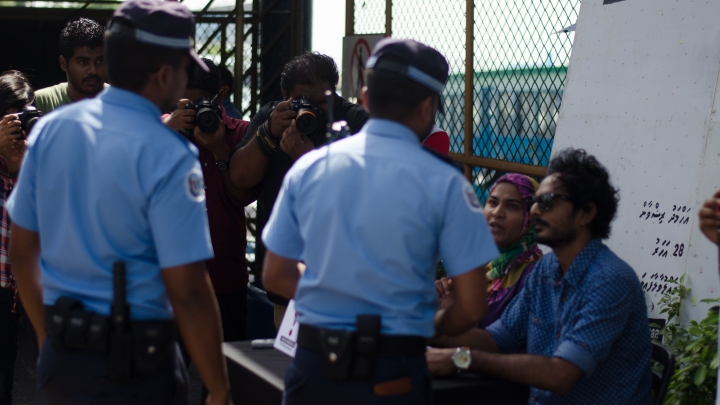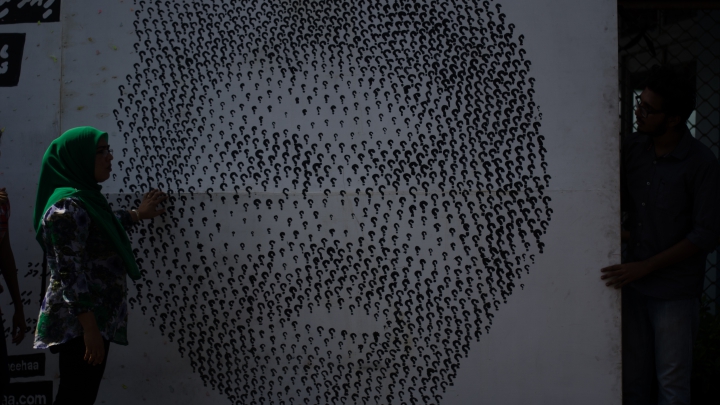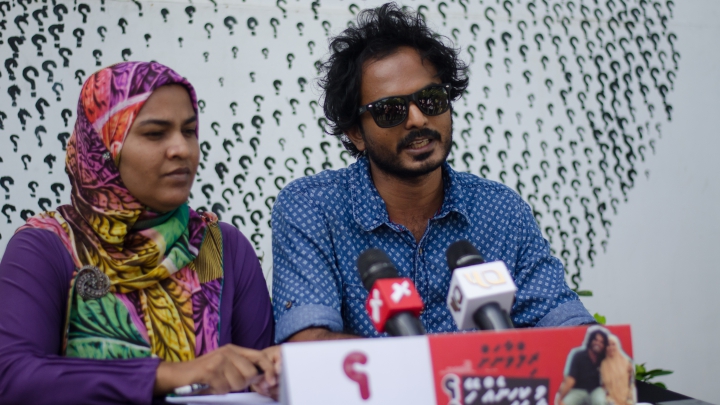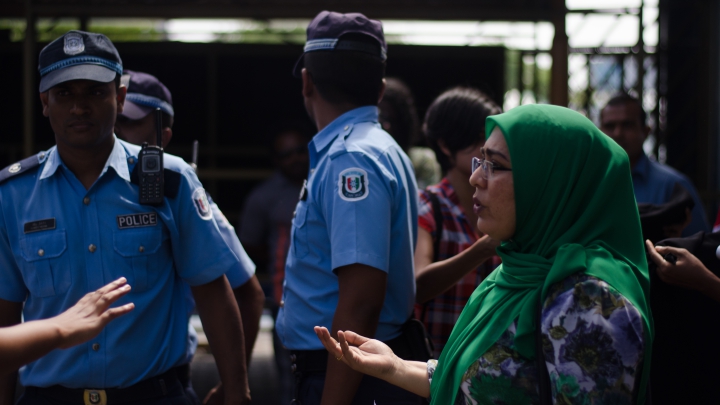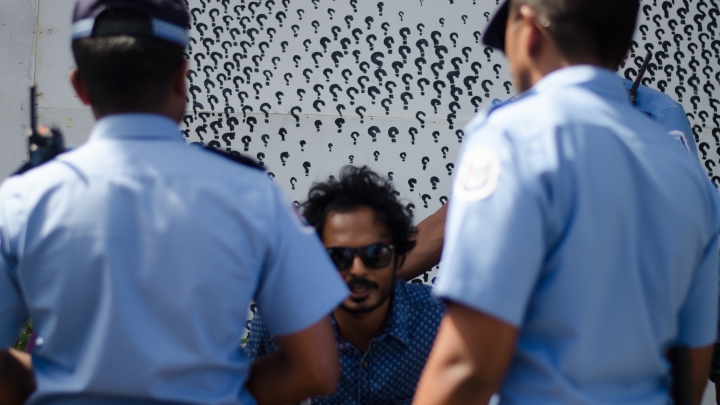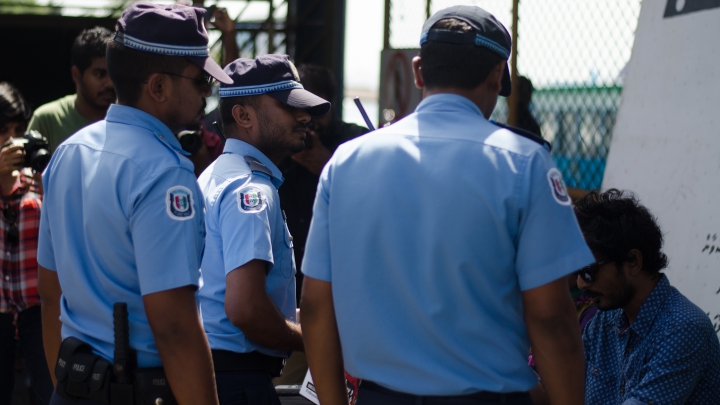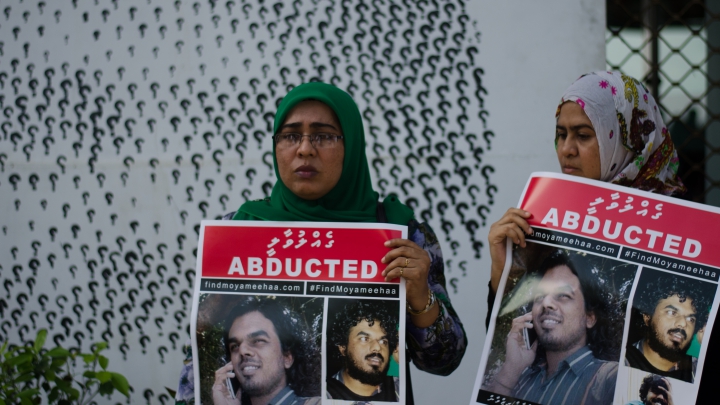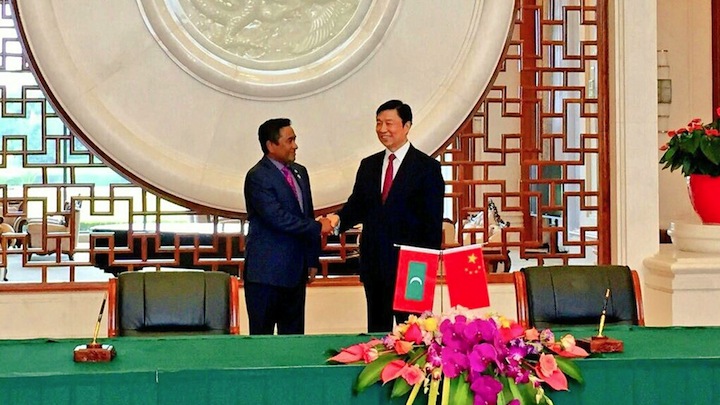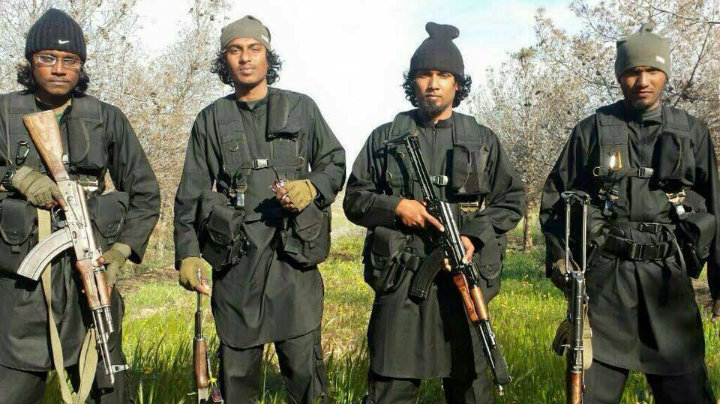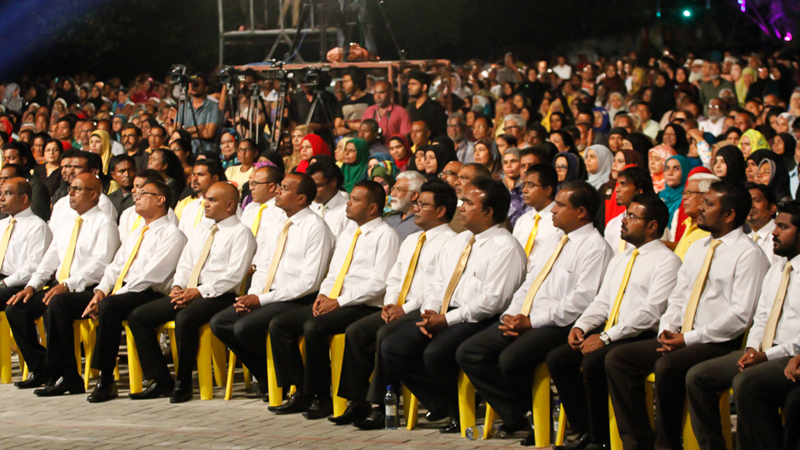The Anti-Corruption Commission (ACC) is investigating corruption in the home ministry’s use of an MVR150million (US$9.7million) budget allotted for independence day activities. The ministry is accused of awarding lucrative projects to private companies without a bidding process.
The Maldives will mark 50 years of independence from the British on July 26.
An office set up under the home ministry has awarded a restaurant New Port with a MVR1million catering contract and a British company called The Projection Studio with a contract to manage sound, light and projection at the official celebrations.
Several monuments, public parks and the official jetty are also under renovation. A civil society group has been given a professional fee of MVR1million to make a replica of a historic boat.
President Abdulla Yameen has meanwhile bought a brand new luxury yacht worth US$4million for the independence day celebrations.
“The ACC formed a special committee to investigate the office on its own initiative after receiving complaints,” said assistant director Hassan Manik.
However, the head of the Minivan 50 (independence 50) office and deputy home minister Ahmed ‘Maaz’ Saleem denied corruption and said: “Instead of opening a public bidding process we are approaching local and foreign companies with relevant expertise and awarding the contract to the cheapest option with a special permit from the finance ministry.”
He also told Minivan News the ACC was overseeing the office’s transactions on their invitation.
Minister of Finance and Treasury Abdulla Jihad confirmed the provision of a special permit for the Minivan 50 office to “hand out some of the projects.”
While Saleem had refused to disclose the budget of allocated to independence day celebrations, Jihad confirmed to Minivan News that the figure amounted to MVR150 million.
Saleem insisted that the private companies were not profiting off of independence day activities, but that they were only charging a “professional fee.”
The deputy minister said the activities had been planned after a public consultation. The home ministry had called for proposals in 2014 and held a public forum this year to discuss proposals. “The celebration activities were decided by the public,” he said.
The home ministry has held a mandatory parade for all students, a swim between capital Malé and suburb Villingili and slaughtered 150 goats for the golden jubilee of independence.
